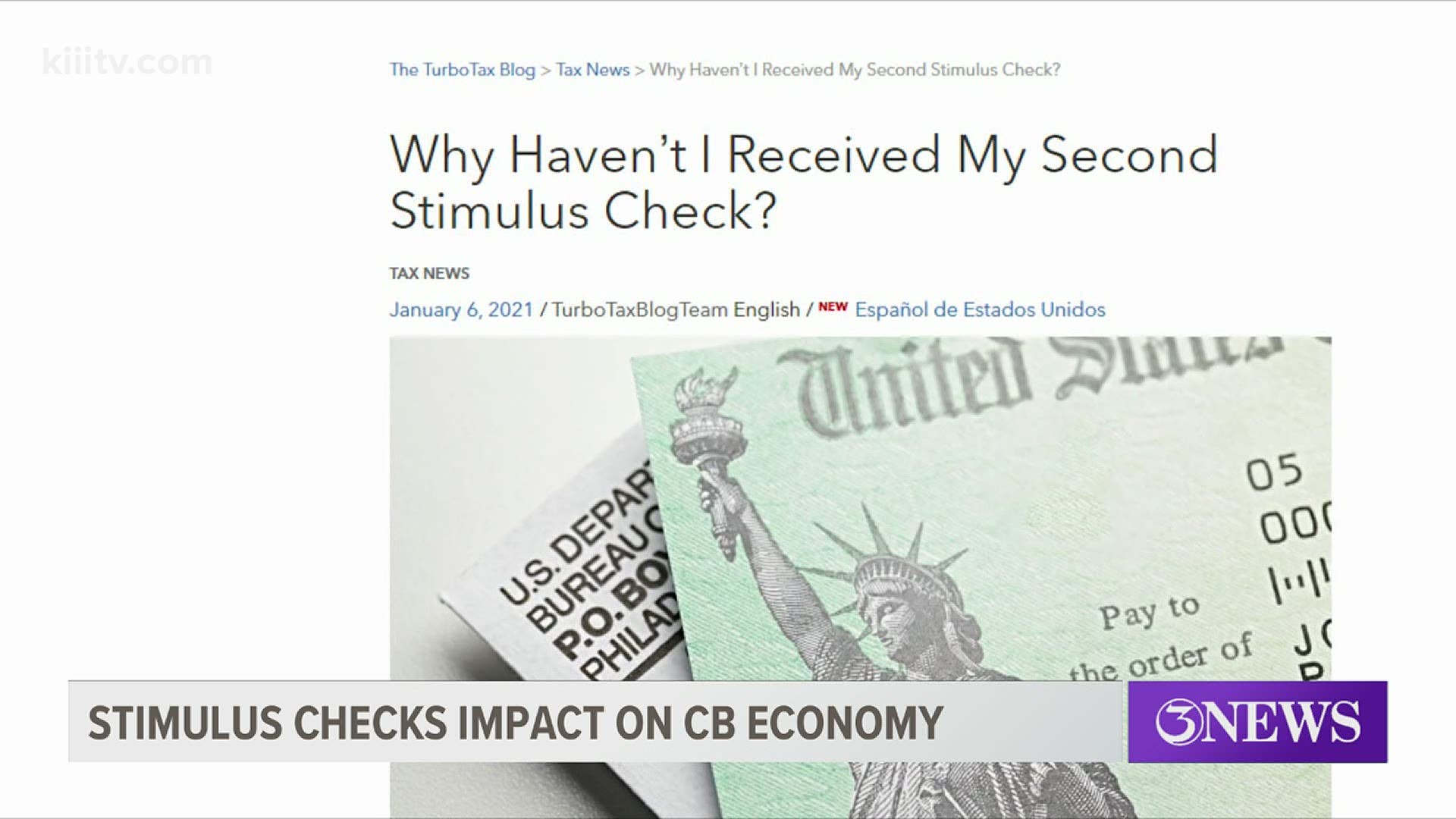CORPUS CHRISTI, Texas — Most people in the country have so far received $600 in government stimulus payments due to COVID-19, and another $1,400 is still pending if Congress goes along with what President-elect Joe Biden said he will ask for.
So how far will that money stretch if you live in the Coastal Bend?
Many Americans started receiving their stimulus payments just days before the New Year, but some are still waiting. The rules are the same as with the first round of stimulus money -- if you have an adjusted gross income of $75,000 or less, you'll get the full amount. It's the same for a married couple filing jointly who made a combined $150,000 in 2019. If you made more, however, the stimulus amount gets progressively lower.
With all that in mind, how far can you expect to stretch that money when it comes to food, rent, mortgage and utilities?
"Food is expensive," said Bea Hanson, Executive Director of the Coastal Bend Food Bank.
Hanson said the dollar just doesn't stretch like it once did. Many have to improvise when it comes to meals, which according to the government cost $3.02 per day.
"So let's say you have a family of four. They all have three meals a day, so that's 12 meals. Times two days, that's 24 meals. 24 meals at $3.02 is $72.48 a week."
If you multiply that amount for a month, Hanson said it doesn't leave much.
"Which means that the $600 stimulus check will cover the meal tab for a family of four two weeks," Hanson said.
Then come the utilities for the City of Corpus Christi. The average customer uses about 6,000 gallons of water per month, and about 2,000 cubic feet of gas.
"So based on that, the total for a month, at those consumptions and usage, would be about $164," said Reba George, assistant director of the City of Corpus Christi's Water Utilities Department.
That does not include electricity, which could range from $150 to $250 each month on average.
"Well the reality, if people have been unemployed or if they've been furloughed for a while and haven't returned to work, the money won't last that long," Salvation Army Captain Patrick Gesner said.
However, there is one bright spot amid all the darkness, Gesner said. The Salvation Army has some additional funds that can help families in need.
"So if people are in a tight pinch for paying their utilities or paying their rent, please have them give us a call," Gesner said.
There is a screening process to determine who is eligible for the help, but Gesner said the good thing is that there is help available.
For the latest updates on coronavirus in the Coastal Bend, click here.
More from 3News on KIIITV.com:
- COVID-19 vaccine in the Coastal Bend: Everything you need to know
- What is 'herd immunity' and how can it be achieved? Medical expert explains
- Major brush fire burns over 1,000 acres of ranch land in Duval County Saturday night
- Man arrested after Nueces County Deputy discovers illegal narcotics during traffic stop

